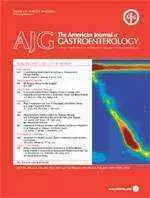Celiac.com 03/25/2010 - A team of researchers recently set out to compare the diagnostic performance of IgG anti-deamidated gliadin peptide antibody assays against IgA anti-tTG in celiac disease. The team included P. Vermeersch, K. Geboes, G. Mariën, I. Hoffman, M. Hiele, X. Bossuyt, all associated with the department of Laboratory Medicine, Immunology of University Hospitals at the Catholic University of Leuven, Belgium.
Celiac.com Sponsor (A12):
Using IgG anti-deamidated gliadin peptide antibody assays to test for celiac disease is more sensitive and more specific for celiac disease than detection of IgG antibodies against native gliadin. The team compared assessed the technical performance and accuracy (sensitivity and specificity) of commercial IgG anti-DGP assays from Euroimmun, Inova, Phadia and The Binding Site against other serologic assays for celiac disease, such as 3IgA and 2IgG anti-tTG assays, 1IgA and 1IgG anti-gliadin assay, 1IgA anti-DGP assay.
For the study, they tested 86 patients with clinically proven celiac disease and 741 healthy control subjects. Technical performance of IgG anti-DGP assays as gauged by linearity, interference and imprecision, was within acceptable levels. IgG anti-DGP assay sensitivity ranged between 76.7% and 83.7% at the manufacturer's recommended cut-off, and between 74.4% and 84.9% at a cut-off that corresponded to a 98% specificity level. Specificity ranged between 97.3% and 99.3%.
The diagnostic accuracy of the IgG anti-DGP assays was comparable to the diagnostic accuracy of the IgA anti-tTG assays. IgG anti-DGP assays showed significantly better than sensitivity than the IgG anti-tTG assays (p<0.05) and and significantly better specificity than IgA and IgG anti-gliadin assays (p<0.05).
The four IgG anti-DGP assays all performed within acceptable limits, and diagnosed celiac disease with comparable accuracy as did the three IgA anti-tTG assays.
Source:
- Open Original Shared Link.








Recommended Comments
There are no comments to display.